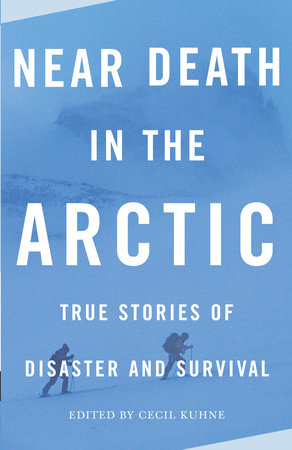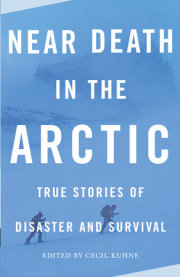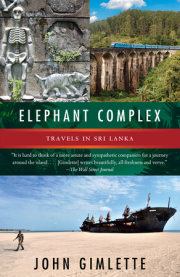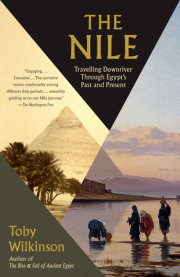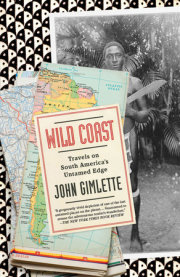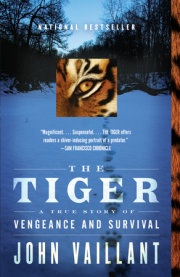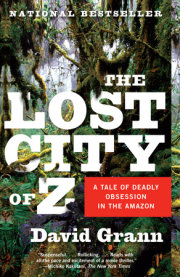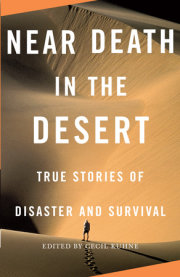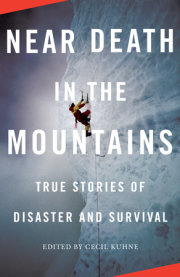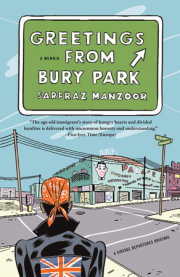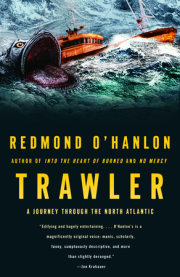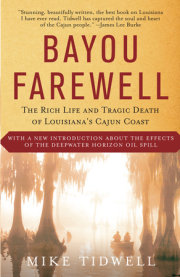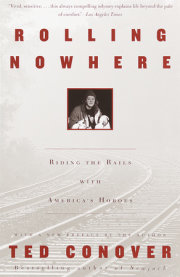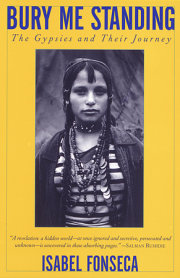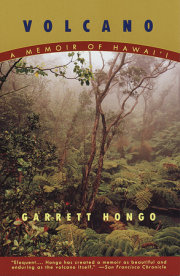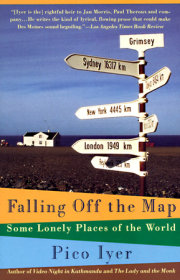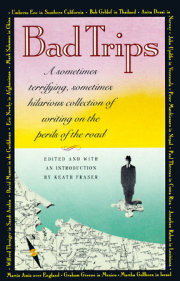IN THE LAND OF WHITE DEATHAn Epic Story of Survival in the Siberian ArcticVALERIAN ALBANOVOver the Polar Ice PackWith the runners creaking and pitching like boats plying ocean swells, our sledges moved southward over the ice. We could see that ice hummocks and pressure ridges lay ahead of us, but we were confident there was a passage between them.Although the route was quite straightforward at the start, and each sledge was being hauled by at least three men (two of them by four men), we did not seem to be making much headway. After half an hour, we made a short stop and discovered that we were still quite close to the Saint Anna.No sooner had we climbed up one of the first pressure ridges than the runners broke on one of the sledges. We repaired the damage at once and set off again after three-quarters of an hour. Brusilov, who was very concerned about this accident, immediately sent two men back to the ship to fetch two parrels* from the mizzenmast, in case we had to make other repairs in the future. Behind a high rise that hid the ship from view, Miss Zhdanko and Kalmikov, the cook, decided to return to the ship. The weather was rapidly deteriorating. Two hours later a strong south-southwesterly gale began to blow, bringing with it a raging snowstorm.We pitched camp for the night. The tent was placed in the center with the kayaks propped up all around it for protection. Our pedometer indicated that we had barely covered three miles. Soon we were all gathered together in the tent around our blubber stove, drinking milky tea. To everyone's surprise, Brusilov handed out pieces of chocolate, and even produced a bottle of champagne. Although we had only one mouthful each, it was not the quantity that mattered, but the fact that we were at 83¡ latitude, toasting our respective homeward journeys! We chatted for a while about the past, the present, and the future and then bade a moving farewell to our helpful companions, who set off for the ship on their skis.The blizzard gained in strength, causing the tent to snap and groan. Exhausted, we slid into our malitsi and immediately fell into a deep, comforting sleep. When we awoke at ten o'clock to the sound of the gale still howling with the same force, we could not imagine traveling on in such conditions. Flurries of snow had been blown into the tent, and our furs were dusted with white. It was a bad start, and most discouraging. The thermometer indicated -9¡ Fahrenheit. But we had to think about maintaining our strength, so we got up to prepare a meal. We had enormous difficulty in opening the tent door, and even more so in uncovering the kayaks buried in the snow. We eventually managed to boil some water for tea, and to warm up some cans of Australian meat, which dulled our hunger. We then climbed back into our malitsi, since the dreadful weather precluded any other form of activity, and that is how we spent the day.The next day brought no improvement, and in the end we were stopped for three whole days. We stayed in the tent the entire time, bundled up in our reindeer hides, eating and sleeping. My companions preferred sleeping in pairs: they would slip their legs and the lower parts of their bodies into one malitsa, and pull the other malitsa over their heads. This method is recommended for creating and preserving body heat, but it has the disadvantage of disturbing one's sleep each time the other sleeper moves or turns over. For that reason, I always preferred to sleep alone, and later developments would show how right I was. Bed companions often squabbled, which occasionally led to more serious arguments. Generally, the disruptive partner did not even realize how much he had been disturbing his neighbor, and felt that all forthcoming complaints were totally unjustified. Insults would be exchanged, occasionally degenerating into prodding and shoving or half-hearted punches, until eventually the adversaries turned their backs on each other and endeavored to fall asleep again. In most cases, that is how hostilities ended. The most quarrelsome bed partners were the inseparable friends, Konrad and Shpakovsky.Those who chose to sleep alone had to accept a certain heat loss because it was impossible to fit one's entire body into one's malitsa. I tried to ward off the worst of the cold by jamming my legs as deeply as possible into my malitsa while covering my head and chest with my warm jacket.And this is how we stayed for three days and three nights, immobile. Since it was impossible to move on, we had to resign ourselves to the inevitable. At least it gave us a good opportunity to become accustomed to life in the tent, and physically we were quite comfortable. At times some of the group would sing to try to brighten our solitude, or to drown out the howling of the storm. Only one of them, old Anisimov, who back on board used to complain of pains in his back and legs, was becoming more and more listless, so I decided to send him back to the Saint Anna. It was the only solution, as we would not be able to nurse him later on, and he was no longer fit enough to pull a sledge.On the evening of the thirteenth the wind had abated a little and suddenly we were awakened by noises and shouts from outside the tent. When we opened up the entry flap we were greeted enthusiastically by three messengers from the Saint Anna; Denisov, Melbart, and Regald. They had wanted to come and visit us the night before, but the blizzard had prevented them from doing so. Today they had braved the elements in order to bring us some hot soup, which we gulped down ravenously. They told us that the ship was buried in snow up to the gunwales. They brought us some shovels, and we immediately started digging the kayaks out from beneath the snow. Our faithful friends left again that evening with our ailing comrade, but the next day one of them, Regald, returned with his belongings to take Anisimov's place.At around noon, I took another sun sight and was very surprised to find a latitude reading of 83¡17'. I was wondering about the precision of my calculations, when Regald handed me a letter from the lieutenant, confirming that he had found a latitude of 83¡18' that same morning. In that case there could be no doubt: in the course of the last four days the storm had driven us northward by roughly twenty-two miles. On our first day's trek we had covered only three miles, which meant that so far, in spite of all our efforts, we were actually nineteen miles farther from our goal than when we had left the ship! This observation immediately drained me of almost all hope. But then the thought that summer was on its way--and that northerly winds would prevail throughout most of the season--restored my courage and convinced me to carry on. So we made ready, packed up the tent, and set off. Then a new, disturbing incident occurred: we had hardly gone a few yards before we were overcome by dizziness and felt so weak that we had to lie down.Had the three days of sleep done us more harm than good, or were we already so worn out by the most recent Arctic winter that our strength was nearly gone? I looked at each of my companions: they all had wan, yellowish complexions which stood out in the bright sunlight with frightening clarity--something we had not noticed in the winter twilight, particularly in the dim light of the blubber lamps.After a while, we felt better, but rather embarrassed by our weakness. We set out with only three of the seven kayaks to begin with, which we hauled two miles to the south, and then returned to fetch the other four. The Saint Anna stood out clearly over the pack ice, the weather was fine, and the sun felt warm already. These things combined to restore both our courage and our undaunted determination to overcome every obstacle, and to attain our goal, however long it might take us.That day we traveled nearly four miles and camped in a place sheltered by high mounds of ice. The following day was the same. We did three stages at this speed. Our route was so encumbered with obstacles and so obstructed by ice, which had piled up in many places to form formidable pressure ridges, that it was impossible to go any faster. To make things even worse, it was becoming increasingly clear that the runners of our sleds were too narrow and too close together: they sank deep into the snow, and we wasted all our time and energy in dragging them free. We logged only two and a half miles that day. The two crew members who had come earlier, Denisov and Melbart, joined us again with unfailing devotion, bringing us more hot soup. They made fun of our snail's pace and threatened to come and visit us daily for another full week. Denisov, especially, who was half Ukrainian and half Norwegian, showed great interest in our exploit; he was very fit and had much Arctic experience, and could travel up to forty miles a day on his skis. Without a doubt he was the most capable of all those who had remained on board, and since he had an unusual background I will tell you a little about him.He left his father's home in the Ukraine when he was thirteen, stowed away in the hold of a large steamship, and on disembarking in a foreign port he found employment as a sailor, working different ships until one day he ended up on South Georgia Island, in the stormy waters off Antarctica. There he went to work on a whaler and learned to become a harpooner. He later married a Norwegian girl and was just as happy in Norway as he had been in the Ukraine, or so he used to say. When he heard of Brusilov's intention to go whale hunting in the Arctic and Far East, he volunteered at once, although he could have obtained a better-paid position in Norway. But the special nature of this new expedition appealed to his adventurous spirit. Although Denisov felt entirely at home in Norway, he loved Russia passionately, and it had always been his cherished dream to sail aboard a Russian whaler.By April 16, we had lost all communication with the Saint Anna. Denisov could no longer catch up with us, and by evening the vessel had disappeared beneath the horizon. Yet we were gradually getting used to this nomadic existence. We got up at seven in the morning and prepared our breakfast. During the early days, we still had a little bit of seal blubber to cook our meals and melt snow for drinking water. Our stove was a very primitive and inefficient arrangement: we had simply jammed a zinc bucket with its lid well down into an iron, boxlike container, and beneath the bucket sat an iron pan containing the blubber we burned for fuel. When the apparatus was lit, the temperature rose inside the tent, but there was so much smoke that we soon looked like gypsies. Later, our skin would become even darker.As a rule, we set off at around nine o'clock with a few sledges, which we pulled for about two hours, and then returned for the others. It was always a very tiring ordeal, and every day we regretted the fact that our sledges were not fitted with wider runners. The snow was very deep and we would sink to our knees. It was impossible to haul the heavy sledges on skis, since they would simply slide backward. After this exhausting chore, we would sit in the shelter of our kayaks and nibble on biscuits with a bit of chocolate. We had to be sparing with our meager provisions. After resting for an hour and a half, we would haul the first three sledges and kayaks, one of which contained the tent, for another mile or two, until we reached a suitable camping spot. We always chose the highest hummock of ice we could find so that we would have an uninterrupted view of the horizon. Two men would stay and keep watch over the tent while all the others went back for the remaining sledges and kayaks. We lined the floor of the tent with covers and coats as well as the sailcloth that normally lashed the kayaks to the sledges. As I have previously mentioned, the kayaks were placed in a circle around the tent, together with the sledges, which we attached with ropes to the ends of the tent guy lines. By seven in the evening, we were all settled into the tent, our legs tucked deep into our malitsi while we waited for our improvised stove to heat the water for our evening tea. To save blubber, we rarely let the water come to a boil, and were quite happy with just a warm drink. Then we would lace up the entrance to the tent, already filled with smoke and steam. The evening meal--consisting of tea, biscuits, and canned meat--helped us to forget the cold and our fatigue. When our supply of Australian cans ran out, we turned to Skorikov's "bouillon," which had been prepared with granules of dried meat. We improved the taste of the broth by adding a dried vegetable. These evening hours in the tent were far and away the most pleasant of the day, and did not fail to revive our flagging spirits, although our conversation always turned to the same burning questions: When would we find land? And from there would we manage to reach Cape Flora? What would happen after that, and would we ever see our homes again?We took off our snow-sodden boots and hung them to dry outside on our ski poles. Generally by morning they had dried in the wind. It was also in the evening that I wrote up my diary and made my calculations of the day's navigational observations. When we ran out of fuel, however, the hours spent in the tent became almost unbearable. Those bitter evenings were very silent. We sat hunched together, gloomy and taciturn, huddled deep inside our reindeer hides in our respective corners. No welcoming tea to warm us, our miserable supper was made up of dried biscuit and ice shards melted in the mouth. With the biscuit we were allowed a spoonful of butter that was still so frozen it was hardly a substitute for hot food. Nor was the ice a suitable replacement for the tea, since it did not even manage to quench our raging thirst. Some of the men, later on, managed to get used to drinking seawater, in which they would dunk the ship's biscuit to make a broth flavored with dried onion.
Copyright © 2009 by Cecil Kuhne. All rights reserved. No part of this excerpt may be reproduced or reprinted without permission in writing from the publisher.

